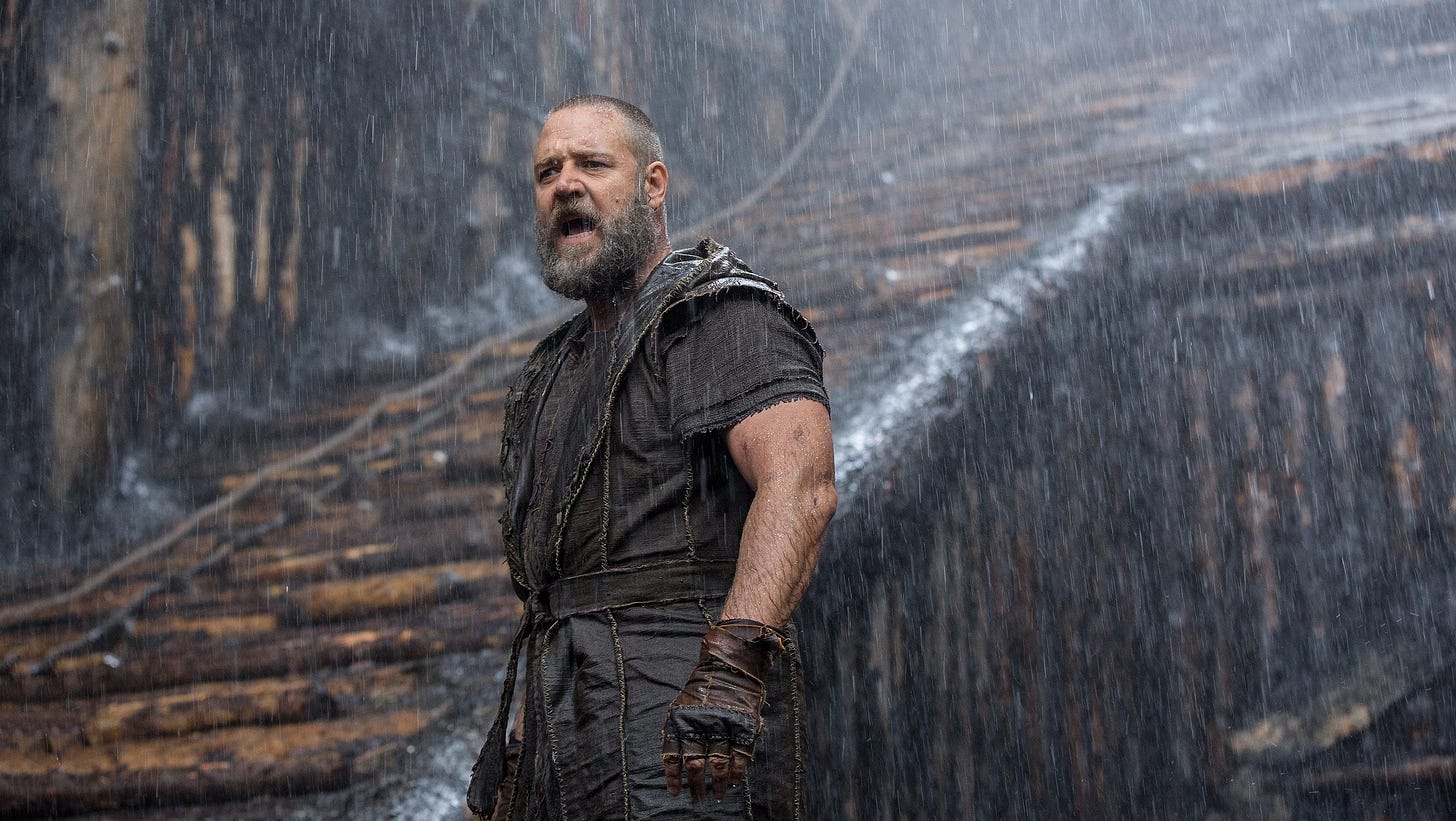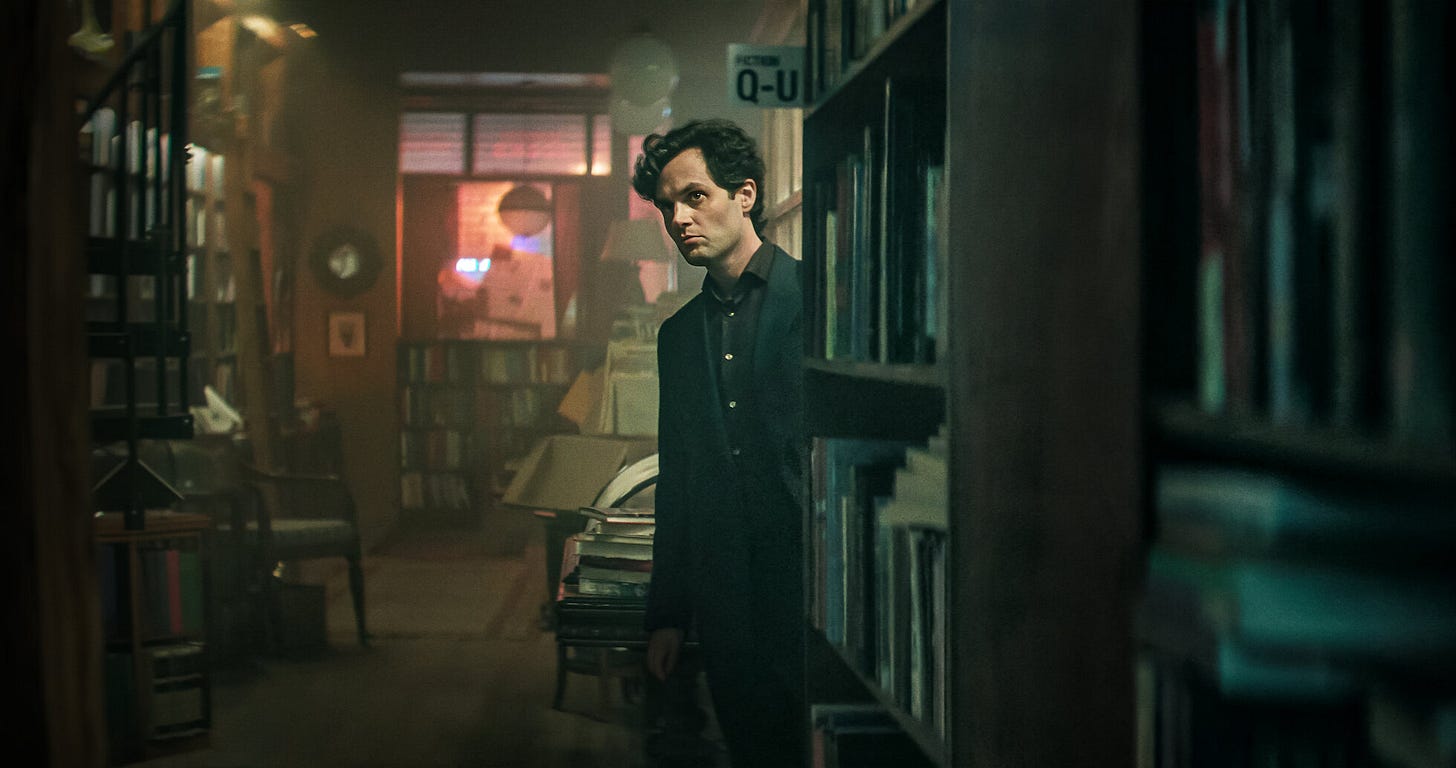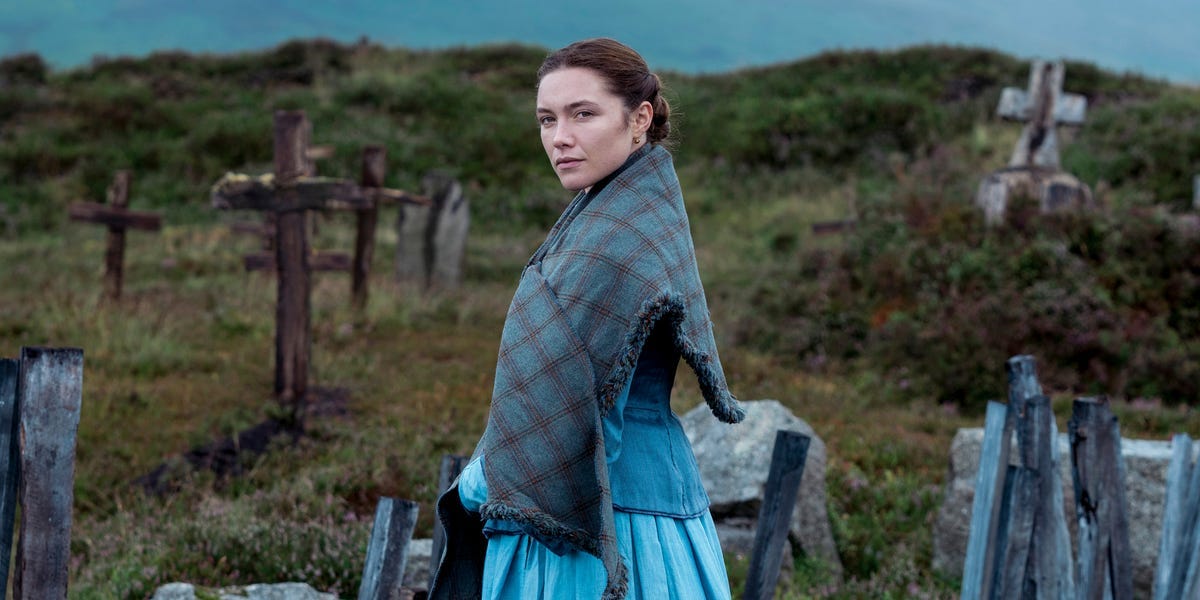5) How far is too far? What to do about anti-heroes and grimdark games of doldrums
Want your stories to be taken seriously? Let's talk about the problem of evil.
Ever feel torn between writing the stories on your heart and meeting everyone’s expectations—too “preachy” for some, not “evangelical” enough for others? I’m Dominic, founder of LegendFiction. If you’re struggling to balance faith, creativity, and the joy of good storytelling, you’re not alone. This isn’t about ‘stuffing doctrine’ into every page or apologizing for your imagination. It’s about finding freedom to write boldly, letting faith inspire without limiting your art. This mini-course Storyteller: How Faith-Inspired Authors Can Find the Freedom to Write the Coolest Fiction in the World shares what it really means to be an author, how to respect your audience, and why your faith is a lifeline to go anywhere and not get lost. Let’s drop the guilt, embrace what’s real, and write stories that matter.
In a grey city that stretches in unending skylines, and continues to grow because every person there has a magical ability to create new neighborhoods at a whim (all to get away from each other), a set of bone-bored tourists line up take a bus trip to the rim of Heaven.
This is ‘The Great Divorce,’ a novel by C.S. Lewis. It’s like stumbling into a Narnian landscape. These tourists discover something awful. The grass is sharp and solid as spear blades. Apples from the trees fall and crush them like meteors. They realize they are thin and weightless, like ghosts.
A group of bright, friendly angels are waiting for them, encouraging them to do something simple. Drink a glass of water from the river. A single glass of that water will bring them heft and weight, the weight of glory, the weight to stand on the grass, eat the fruit, and ride the wild glorious animals of the plains.
But nearly everyone backs off. They’re afraid. This novel is a series of short stories, like conversations, why different kinds of people prefer to return to the doldrums below rather than take a sip of salving water.
As storytellers, as human beings, we should be aware that the same blood flows in our veins. The same weakness.
“If I had to say what a “Catholic novel” is, I could only say that it is one that represents reality adequately as we see it manifested in this world of things and human relationships.”
Flannery O’Connor, ‘Catholic Novelists and Their Readers’
Most humans are like this. You and me too. We have blindspots.
So we turn to stories to dial up the drama of grace and judgement and sin and consequence.
Sometimes we need to follow our characters down the sewers and skyscrapers of their journey. Perhaps we leave them there at the end of the story, rooting around with the pigs and secretly wishing they could return home, that all manner of things could be well. Sometime we can tell anti-hero cautionary tales, because know that not even death is the end.
But when it comes to showing evil in stories, we shouldn’t shy away.
“Imaginary evil is romantic and varied; real evil is gloomy, monotonous, barren, boring. Imaginary good is boring; real good is always new, marvelous, intoxicating.”
Simone Weil
I really think that’s the weird thing about being an author. When we sub-create a person in our storytelling, we mimic God’s divine omniscience. We love our character through every terrible moment, because we know that ultimately, they can change.
We know this from the inside of who that character is.
Perhaps we know that it will take unbelievable agony and pressure. It will take many deaths, and many adventures. The strongest wills hold out the longest, I suspect. But their conversion and freefall into grace make for the a glory stories we line up to watch.
I’ve heard personally from authors who want to create uplifting fiction, and fear going into dark, compulsive, sin-laden places, because they’re afraid of damaging the faith or virtue of their reader.
“This is no superficial problem for the conscientious novelist, and those who have felt it have felt it with agony. But I think that to force this kind of total responsibility on the novelist is to burden him with the business that belongs only to God.”
Flannery O’Connor, ‘Catholic Novelists and Their Readers’
I don’t think you can carry that load.
That fear that you carry comes from two places: 1) you’re not convinced your character needs it in their story, and 2) you’re not confident who your reader is.
If you were convinced that a character’s crippling, life-damaging addiction was central to your story, shying away from facing it head on cuts off your story at the knees. And an audience familiar with this lifestyle will know.
Maybe you were never called to stare down the darkness in the human soul, and without blinking, journal how someone slowly turned around and found a way out. It’s not for everyone.
Your audience may only need the briefest touch, the lightest description. Or it may need gory details. Then we have to ask: how far is too far? At what point have we lost decency?
I can’t answer that.
Partly because I’m not sure there’s a universal answer. I do think there are universal goods that apply in all places and time, and I think that the human family is slowly awaking to these.
But a lot of us haven’t. It’s not obvious to me that all morals go out the window when dealing with an anti-hero, for example. I think that as a religious storyteller, the pressure is higher to be more authentic and less cavalier about the cost of sin on a human life.
Evil is never a comfortable life. It spins up a world of fear, deceit, disloyalty, greed, and most of all, the leprotic lack of any real peace.
Stories like House of Cards, Power, or Game of Thrones highlight the riveting power of evil living. That septic siren call to act free of consequences. There’s always a price, and the characters always pay it.

Once we can get past the glossy drama of Darth Vader, we build a deeper love for him because we know he is only a phase in Anakin’s journey.
In fact, we can be more honest and real about Anakin, and our characters, when we know they’re not finished yet. We can actually sit with every step and sin and stumble in their journey, because it is theirs. We don’t fear the future. We can be more patient and present.
“[The Catholic faith] … gives a writer that dramatic itch for sin, for judgment and damnation, for the rottenness of the world and the holy in us all.”
William Giraldi, ‘Confessions of a Catholic Novelist’
Some stories are going to be cautionary tales, peopled by antiheroes who help us see the consequences of our actions, and give us a chance to feel through the effects of evil.
For example, Midsommar is a ‘daylight;’ horror movie about a girl who gets sucked into a cult. Through carefully orchestrated psychological tactics, her sense of freedom, identity, and purpose is eroded away. She loses herself in the darkness and the fire of this pseudo-pagan hideaway, and we leave her wondering if she’s just made the worst decision in the world, even if she doesn’t understand what it is.
More often than not, stories are about how someone deals with the bad situation they are dealt. In the east, they talk about how dharma meets karma. How our duty meets with the hand we’re dealt.
These can be conversion experiences for some of us.
“Catholic life as seen by a Catholic doesn’t always make comfortable reading for Catholics…”
Flannery O’Connor, ‘Catholic Novelists and Their Readers’
Often, the good choice we definitely need doesn’t feel like a warm and fuzzy Christ. Sometimes, true and real good feels as awful and terrifying as Cthulhu.
Notice how the standard reaction across Scripture and human anecdotes to a ‘mere’ angel is to flatline with terror and awe.
We’re so thin and ghostly right now that the greatest mystics called the trek into Heaven a silent and ‘dark night of the soul,’ with only the memory of a hope. That’s when you grow up, or go back. I think it’s ok. I think that if you go back, you might fall harder.

But that’s where the Desert Fathers would say you’ll build back better. Because a house that has collapsed is easier to rebuild than a house that doesn’t exist. A journey you’ve failed means you’ve walked part of it, and you know that part.
Christ promised that the yoke is easy, and the burden light, as long as we’re not defensive and desperate to hold onto this life. It depends on us. Antiheroes convert the wide-armed, welcoming love of the Cross into hell itself.
Chesterton once said that a genius in Christianity is the Confessional. The ‘magical’ ability to separate sin from sinner.
The genius of storytelling is the imagination. The ‘magical’ arena where we field-test our dreams instead of in daily life.
Being a faith-inspired storyteller doesn’t mean that we have less freedom to be as honest with our subject matter as we’d like. It means that we have more.
Our faith isn’t a straitjacket for our creativity. It’s a lifeline that allows us to go anywhere and explore anything, without fear of losing ourselves.
Sometimes we can bring an insane good to someone by bringing up a question, and making it feel real. Maybe the reader will be filled with the same desire to go on their own journey, find their own answer. Maybe your story is a bus trip out of the doldrums, and your character doesn’t sip that angelic water. And your reader aches with you for that person to do the right thing.
When someone is stuck in an inhumane life, grey with boredom and a hateful future, storytelling can remind us that “the grey rain curtain of this world rolls back, and all turns to silver glass...And then you see it. White shores, and beyond, a far green country under a swift sunrise.”
“Catholics already have the truth, whereas novelists write novels in part because they don’t. The Church has all the righteous answers; a novel is after the right questions. “We Catholics,” wrote O’Connor, “are very much given to the Instant Answer. Fiction doesn’t have any.”
Flannery O’Connor ‘Catholic Novelists and Their Readers’
Some of us portal that world into our lives right here and now. There’s good in this world, and it’s worth fighting for. When we’re honest about evil in storytelling, we’re only pulling back the string on the bow, adding tension and pain to the creaking wood, building up the promise and weight of sending that soul-arrow flying toward home.

Maybe it doesn’t hit the mark. Maybe it just gets close. But an arrow in the air flying in any direction is hot or cold, whereas an arrow on the ground doing nothing isn’t helpful to anyone, even to itself.
I can’t lie. I haven’t figured it all out. But I have noticed that the stories I love best are R-rated, and sometimes horror movies. This is usually because it’s the only rating and genre where storytellers pull off the gloves and get as real as humanly possible.
The depths of addiction, compulsion, sin, and the very edge of existence, are a ferment of constant storytelling.
It’s from that edge of darkness that conversions spark. Those are the edges knuckling the yawning abyss where Christ climbs down, hooks his hands around my back legs, and hauls me back up toward a bowl of soup and soft bread.
That’s a parable, obviously. The actual lived experience of it is more like this: the character wakes up in a warehouse, surrounded by sick, sleeping addicts, needles and garbage like the River Slidr, a river of glaciers and swords keeping you from leaving Hel. And in that moment, something clicks, and they know they need help. They accept the impulse.
Or perhaps it’s even more dramatic, and no less real: the character is a psychopath who craves connection as much as he delights in execution, and finally decides that jumping from a bridge is the only way to find peace from the demons rattling inside him. Perhaps the brush with death, or a friendly hand, pulls him back from the brink.

In all of this, you and I as storytellers are doing shadow work.
We’re climbing down the side of the abyss with Christ, looking for those lost sheep. Don’t flinch. Don’t look away. Maybe your story is an honest look at the reality of the human condition that can save a life, because you were real.
Karen Ullo’s novel ‘Jennifer the Damned’ is about a young vampire raised in a convent, who’s coming of age runs alongside her awakening. It’s dark, real, and gritty. As it turns out, a Catholic priest flagged her down, and thanked her for it. He told her that the teens in his addiction-recovery group loved the book, because it so honestly expressed their own lives.
She never expected to hear that.

“Why should a man be scorned if, finding himself in prison, he tries to get out and go home? Or if, when he cannot do so, he thinks and talks about other topics than jailers and prison-walls? The world outside has not become less real because the prisoner cannot see it. In using escape in this way the critics …are confusing, not always by sincere error, the Escape of the Prisoner with the Flight of the Deserter.”
On Fairy Stories, J. R. R. Tolkien
The sum of the law on this topic is: all things are allowed in stories, except that evil is made to be good, and good evil. A character’s perception of good and evil is not the same thing.
Usually, a story is about a perception (or a wrong idea) shipwrecking against reality. The character realizes that if they change, the pain and problems will go away, or at the very least, they will learn the lesson and gain meaning for their suffering.
Next:
About me: Dominic de Souza
I’m a cradle-Catholic who’s been writing scifi and fantasy novels since I was 13, graduated from the Writer’s Institute for Children’s Literature, and found out I was living in a Catholic doomsday cult. This led to a decade careful rebuilding of what it means to be religious, a book and movie nerd, occasional gamer, and accidental world traveller. Today, I’m a dad, work fulltime in marketing, and build LegendFiction to bring together the coolest storytellers in the world.










